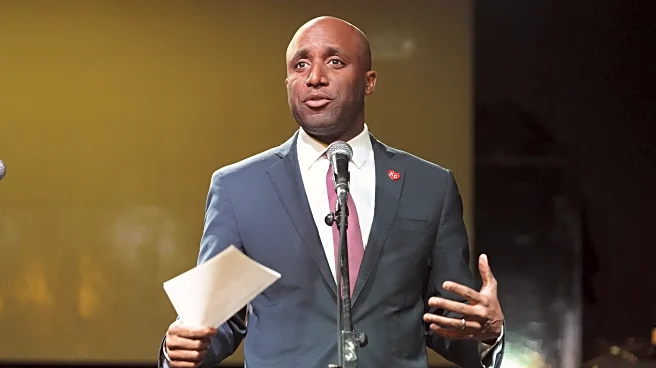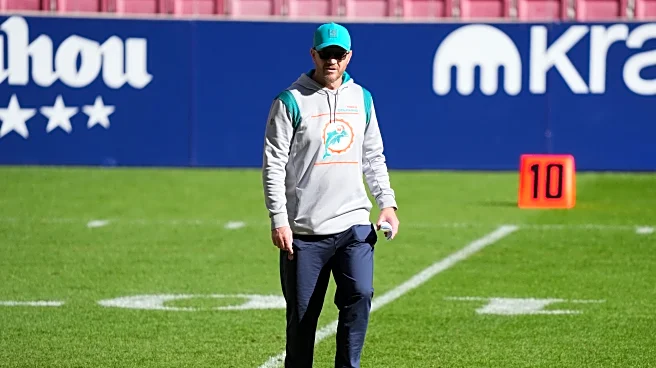What's Happening?
Dwayne 'The Rock' Johnson disclosed in a recent interview that he was informed about the death of Osama Bin Laden before the official announcement by the president in May 2011. The Rock, known for his
roles in Hollywood and WWE, tweeted about the event prematurely, expressing pride in America before the news was publicly confirmed. He received the information through a friend of a friend, who alerted him that the president would make a speech shortly. However, The Rock tweeted before the president's address, leading to a moment of realization when he was informed that the announcement had not yet been made.
Why It's Important?
The revelation highlights the influence and connections of high-profile individuals like The Rock, who can access sensitive information ahead of public disclosure. This incident underscores the importance of discretion and timing in handling such information, especially when it pertains to national security events. The premature tweet by The Rock serves as a reminder of the potential consequences of sharing information without official confirmation, which can lead to misinformation or public confusion. It also reflects the intersection of entertainment figures with significant political and historical events, showcasing their role in shaping public perception.
What's Next?
While The Rock's early knowledge of Bin Laden's death is a historical anecdote, it raises questions about the protocols for sharing sensitive information with non-governmental figures. It may prompt discussions on the responsibilities of celebrities and public figures in handling information that could impact national security or public sentiment. Additionally, it could lead to further exploration of the relationships between entertainment personalities and political or governmental entities, examining how these connections influence public narratives.
Beyond the Headlines
The incident with The Rock also touches on the broader implications of social media as a platform for real-time information dissemination. It highlights the challenges in managing the flow of information in an era where news can be shared instantly, often bypassing traditional media channels. This case exemplifies the need for responsible use of social media by influential figures, who can significantly impact public discourse and perception through their online presence.









